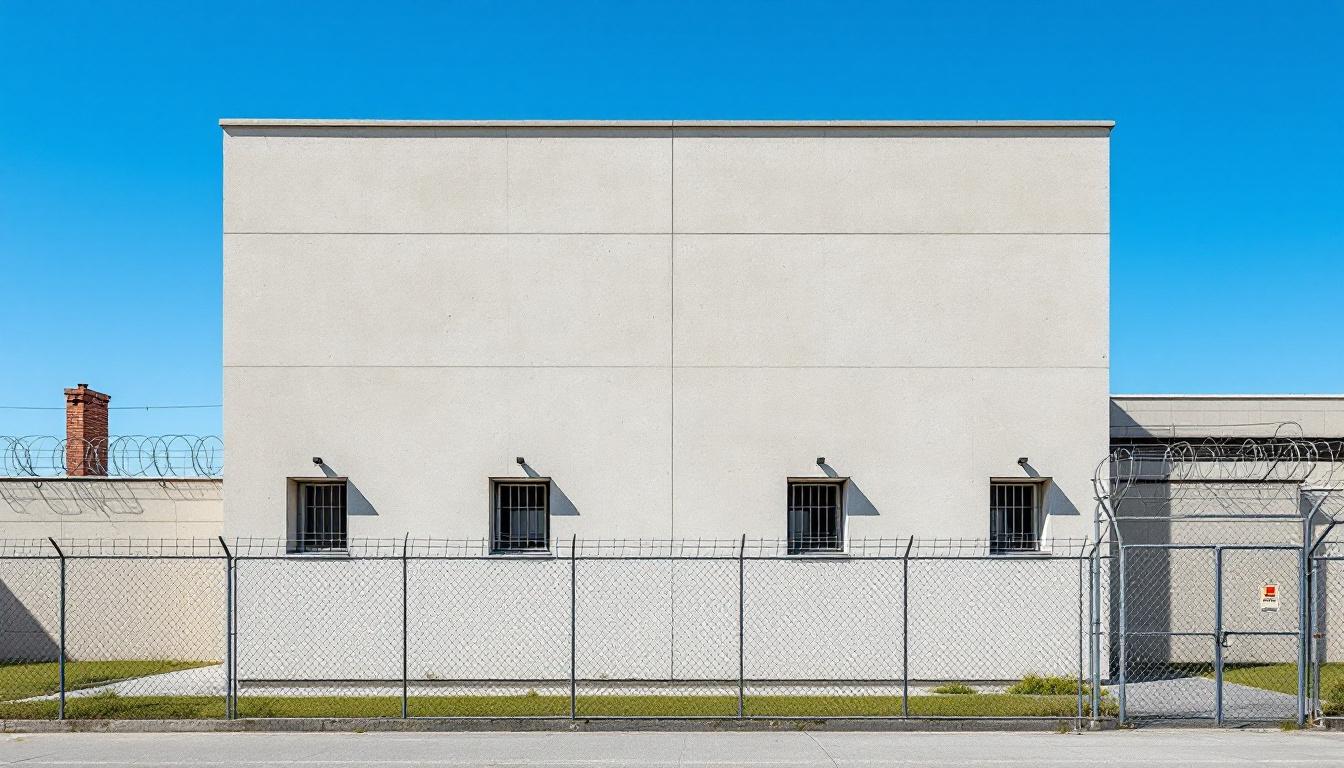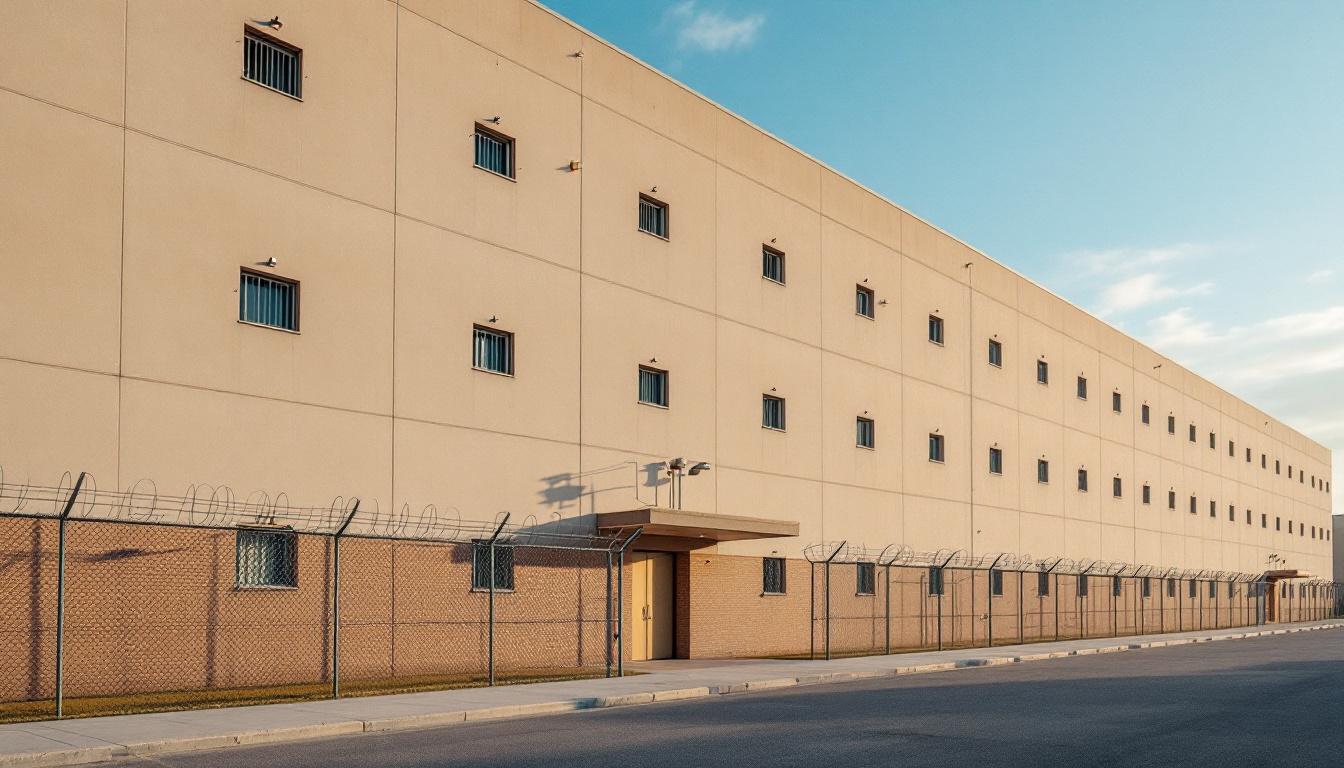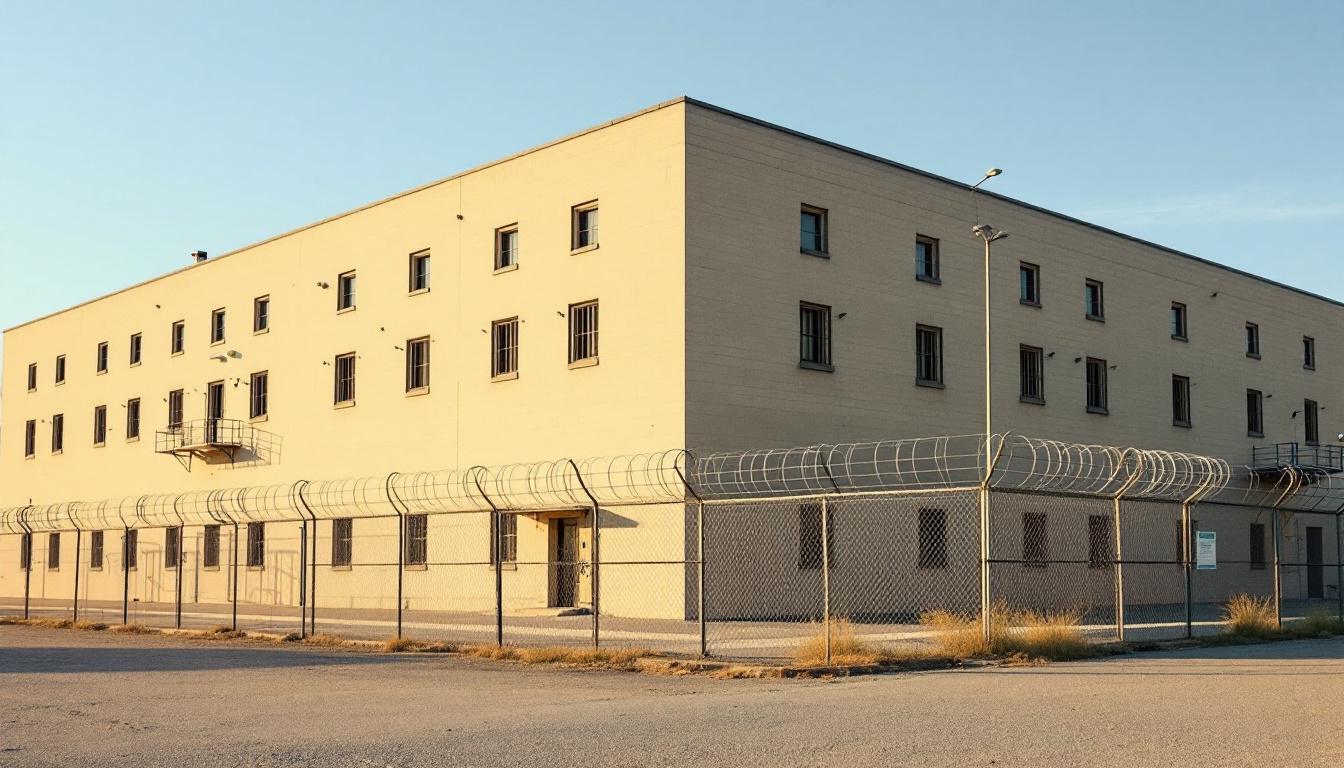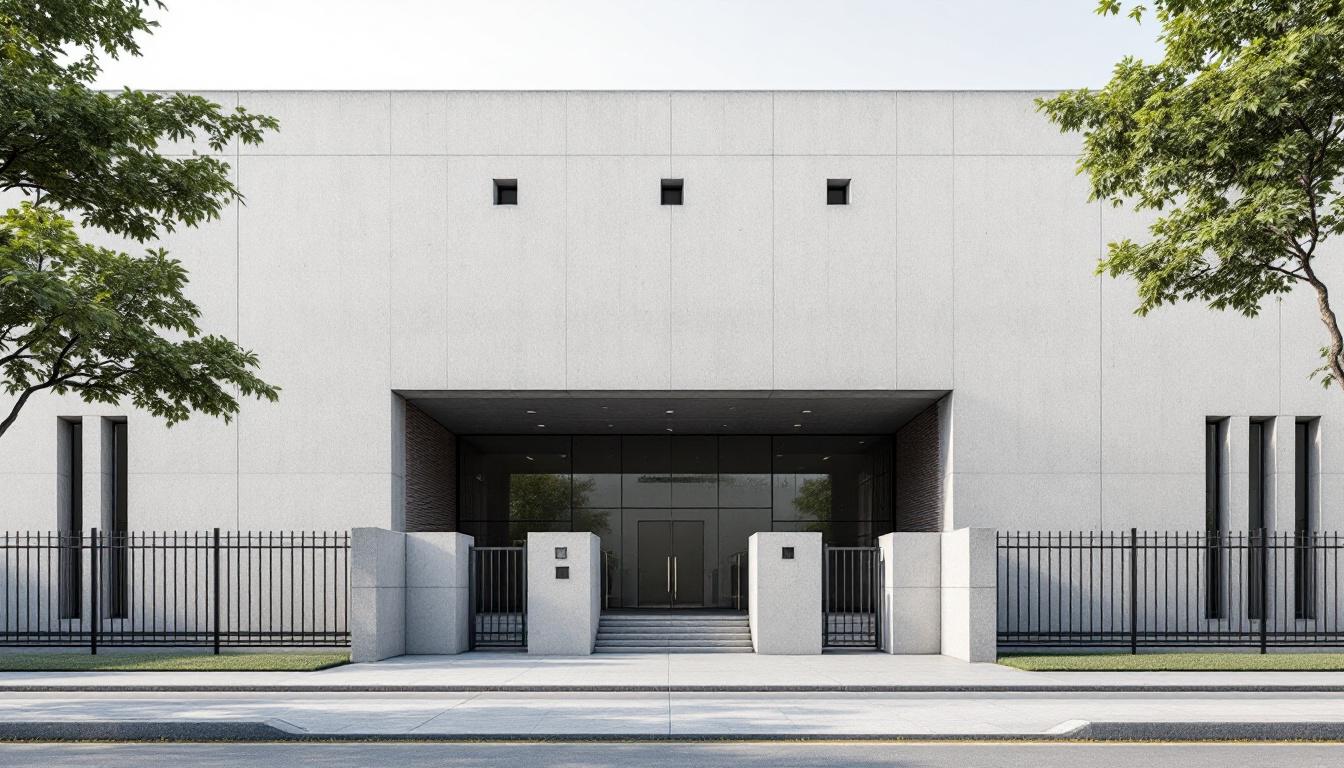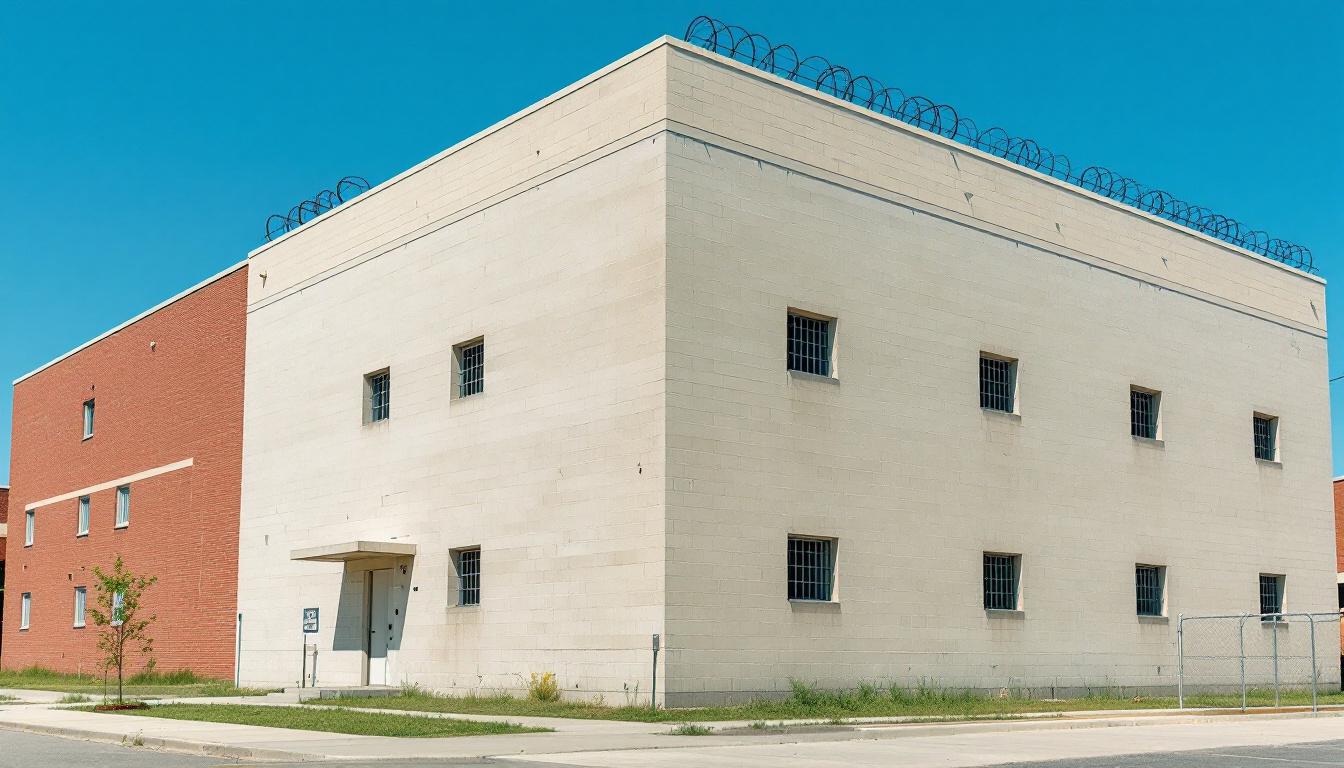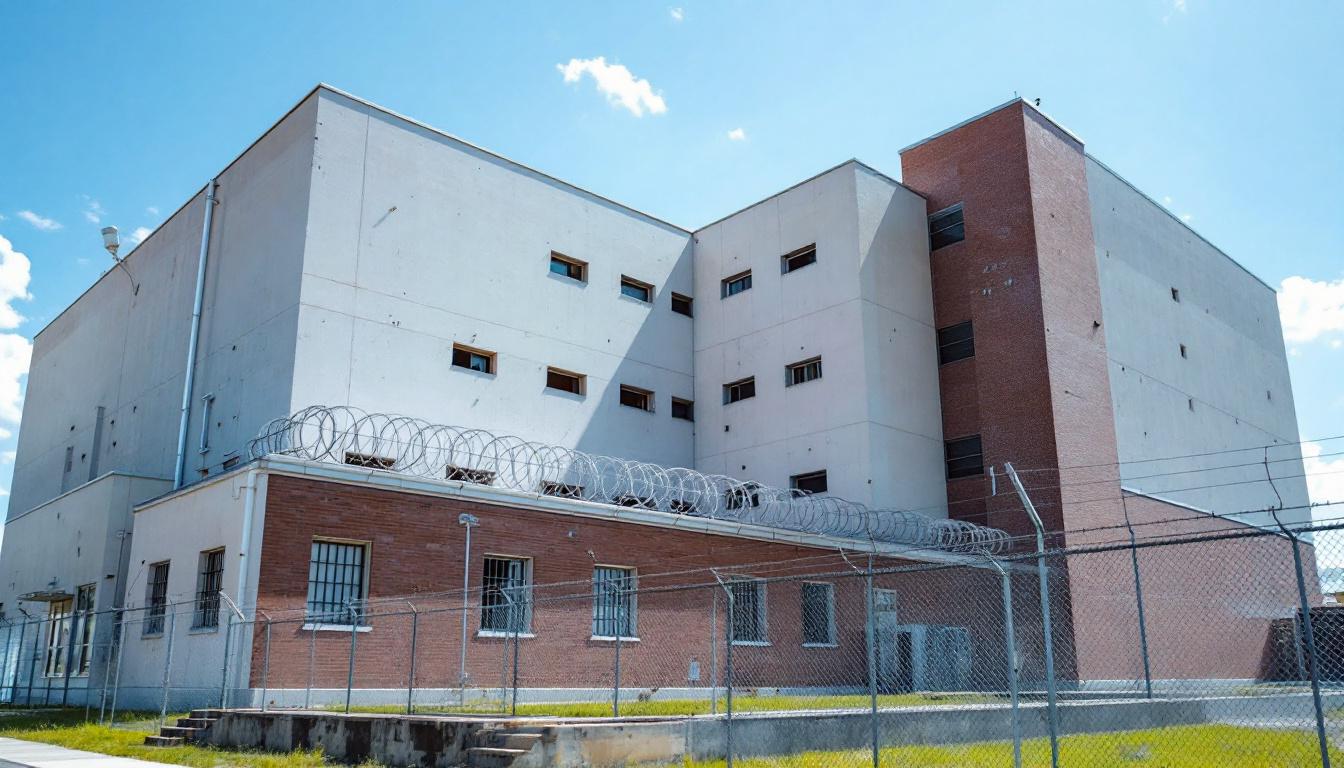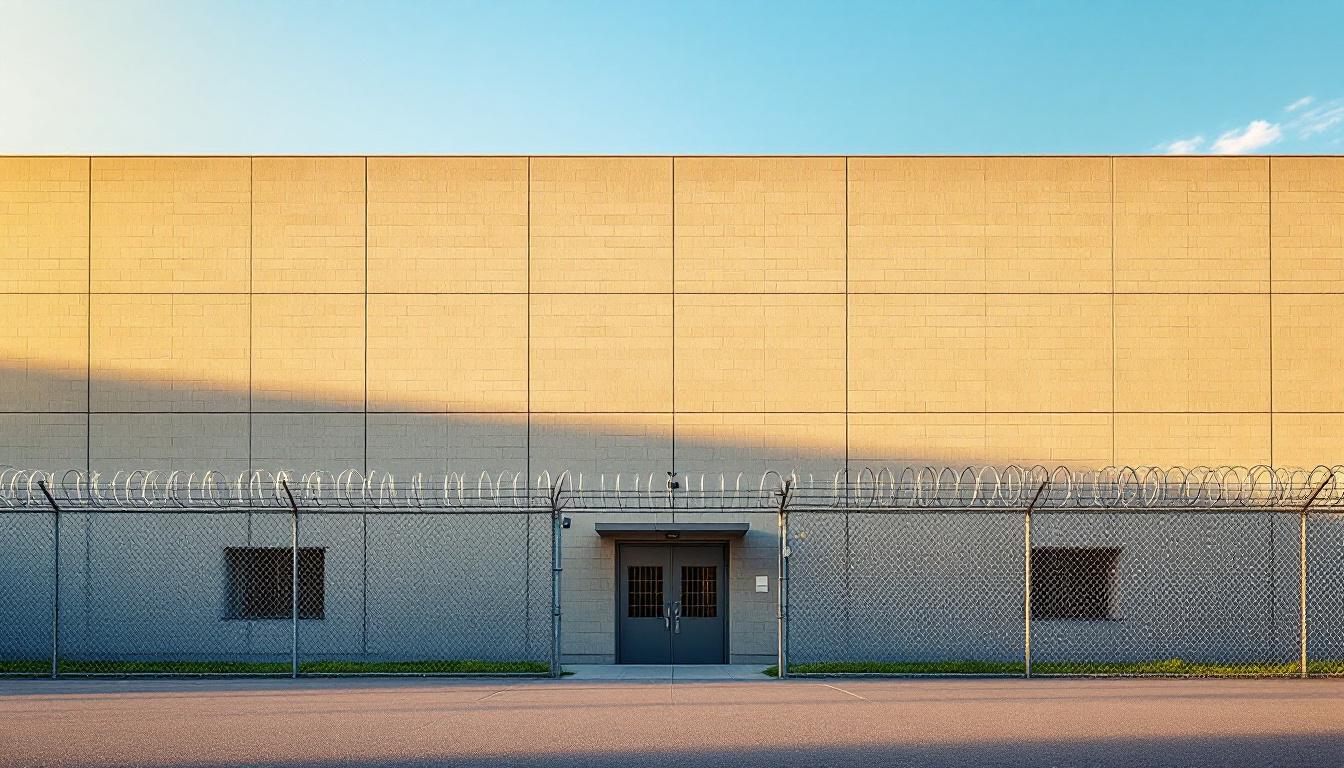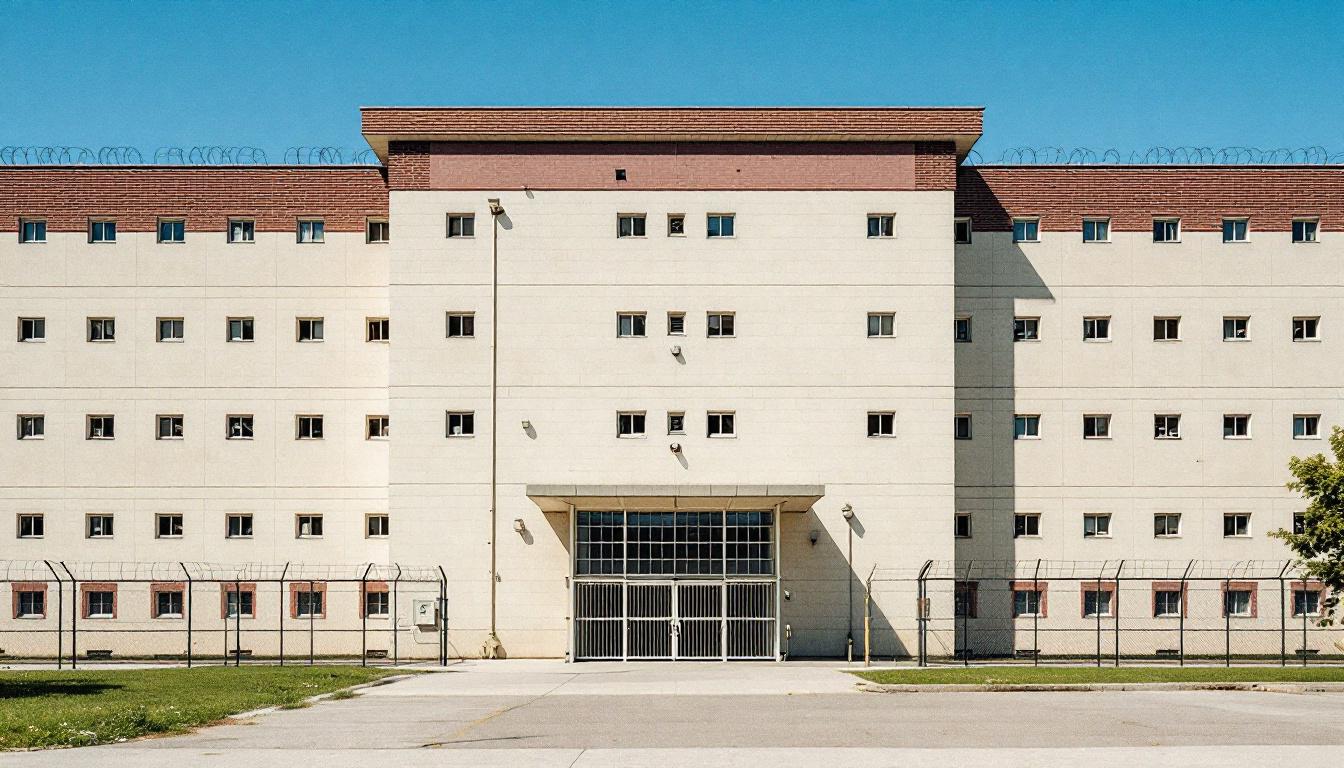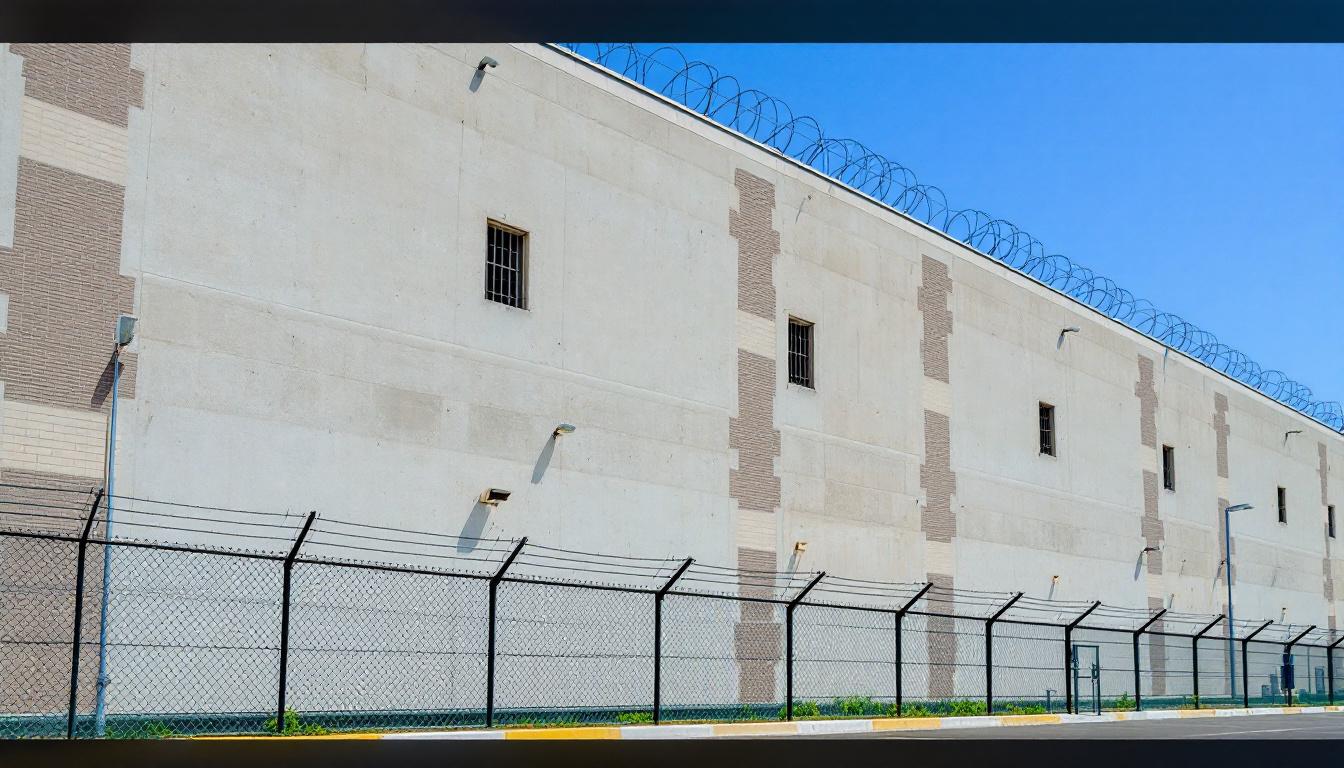
Quick Navigation
How to contact an inmate at Cumberland County Sheriff's Office
This comprehensive guide will walk you through how to connect with an inmate at Cumberland County Sheriff's Office. Follow the steps below to find an inmate and send letters and photos:
- Search for the inmate using our search tool below
- Create your account or log in to Penmate
- Write your message (up to 6,000 characters)
- Send instantly - inmates receive printed copies daily
Find an Inmate
Search for an inmate to start communicating today
Tip: You can search by first name, last name, or inmate ID number
To contact a person at Cumberland County Sheriff's Office start by searching for the person on the official facility website. Perform a search by following these steps:
- Step 1: Enter their first name and last name into the search form and click "Search"
- Step 2: Locate their inmate record
- Step 3: Write down their Inmate ID and any housing information provided
Important! Be sure to enter the person's full name. Nicknames should not be used.
How to Send Messages to Inmates

You can use your phone or computer to send emails, letters, and photos to an inmate. Messages are sent electronically to inmate tablets or kiosks at the facility. If you would like to send a message, start by searching for an inmate at Cumberland County Sheriff's Office.
Sending Photos and Postcards

A great way to send love and support to a loved one at Cumberland County Sheriff's Office is to send photos and postcards. It only takes a few minutes to send photos from your phone and it makes a huge difference. You can also mail postcards with words of support and inspiration, or design your own postcard for special moments like birthdays and holidays.
Important! Be sure not to send any explicit photos or they may not be approved by the facility. You can also use a photo printing app like Penmate to make sure your photos are printed at the correct size (4x6 or 3x5) and are mailed according to the rules and regulations of Cumberland County Sheriff's Office.
Frequently asked questions about Cumberland County Sheriff's Office
-
How long does it take to deliver a message?
If you're sending an email message your letter is usually delivered within 24-48 hours. For messages sent via mail you should expect delivery within 3-7 days. All messages will need be approved by Cumberland County Sheriff's Office.
-
How much does it cost to send a message to Cumberland County Sheriff's Office?
You can send a message free using your phone or mail a message via USPS for the price of a $0.60 stamp and envelope. You can also purchase credits or e-stamps from services starting at $1.99.
-
What services can I use to contact an inmate at Cumberland County Sheriff's Office?
Penmate
You can use Penmate to send letters and photos to an inmate from your phone. It's an easy way to stay in touch during your loved one's incarceration. Use the inmate locator to find an inmate's location and contact information, then you can send messages within a few minutes.
Securus messaging
Securus may be another option for communicating with an inmate at Cumberland County Sheriff's Office. You can create a friends and family account and purchase credits to send messages. All messages will be reviewed and must be approved by the facility.
JPay
Some county jails and state prisons may support sending messages with JPay. You must register an account with the system, find your loved one, and purchase stamps to send messages. For some locations you can also attach photos.
Smart Jail Mail
You may also check if Smart Jail Mail is available at Cumberland County Sheriff's Office. Smart Jail Mail is operated by Smart Communications and has contracted with some state and county jails. After purchasing credits, your messages and photos are sent to the facility, printed out, and then handed out to your loved one.
-
What is the mailing address of Cumberland County Sheriff's Office?
Mailing address:
Cumberland County Sheriff's Office
166 Courthouse Sq
Toledo, IL 62468
Phone: (217) 849-2571 -
What are the visiting hours at Cumberland County Sheriff's Office?
Visiting hours at Cumberland County Sheriff's Office vary by housing unit and security level. Generally, visits are scheduled on weekends and holidays, with some facilities offering weekday visits. Contact the facility directly at (217) 849-2571 or check their website for the current visiting schedule. Visits typically last 30-60 minutes and must be scheduled in advance.
-
What items are prohibited when sending mail to Cumberland County Sheriff's Office?
Prohibited items typically include: cash, personal checks, stamps, stickers, glitter, glue, tape, staples, paperclips, polaroid photos, musical or blank greeting cards, hardcover books, magazines with staples, and any items containing metal or electronics. Only send letters on plain white paper with blue or black ink. Photos must be printed on regular photo paper (no Polaroids). Always check with Cumberland County Sheriff's Office for their specific mail policies.
-
How do I send money to an inmate at Cumberland County Sheriff's Office?
You can send money to an inmate at Cumberland County Sheriff's Office through several methods: 1) Online using JPay, Access Corrections, or the facility's approved vendor, 2) Money orders mailed directly to the facility with the inmate's name and ID number, 3) Kiosks located in the facility lobby, or 4) Over the phone using a credit or debit card. Fees vary by method, typically ranging from $2.95 to $11.95 per transaction.
-
Can I schedule a video visit with an inmate at Cumberland County Sheriff's Office?
Many facilities now offer video visitation as an alternative to in-person visits. At Cumberland County Sheriff's Office, video visits may be available through services like Penmate, Securus Video Connect, GTL, or ICSolutions. Video visits typically cost $10-20 for 20-30 minutes and must be scheduled in advance. You'll need a computer or smartphone with a camera and reliable internet connection. Contact the facility for their specific video visitation policies and approved vendors.
-
What identification do I need to visit an inmate at Cumberland County Sheriff's Office?
All visitors must present valid government-issued photo identification such as a driver's license, state ID, passport, or military ID. Minors must be accompanied by a parent or legal guardian who can provide the minor's birth certificate. Some facilities require visitors to be on the inmate's approved visitation list, which may require a background check. Contact Cumberland County Sheriff's Office for specific ID requirements and visitor approval procedures.
-
How can I find out an inmate's release date?
To find an inmate's release date at Cumberland County Sheriff's Office, you can: 1) Use the online inmate search tool if available, 2) Call the facility's records department, 3) Contact the inmate's case manager or counselor, or 4) Have the inmate provide this information during a call or visit. For privacy reasons, some facilities only release this information to immediate family members.
Facility Overview
Contact Information
Cumberland County Sheriff's Office166 Courthouse Sq
Toledo, IL 62468
Phone: (217) 849-2571
Official Website

About Cumberland County Sheriff's Office
County jails across the Midwest typically serve as crucial community anchors, balancing public safety with meaningful pathways toward rehabilitation, and Cumberland County Jail, IL exemplifies this dual mission within the heart of Toledo's rural landscape. This IL correctional facility operates as an integral component of the regional justice system, serving residents throughout Cumberland County while maintaining the security standards and community-focused approach characteristic of smaller county facilities in Illinois.
Positioned within Toledo's close-knit community environment, the facility typically emphasizes programs that may include educational opportunities, substance abuse counseling, and work-release initiatives designed to support successful reintegration. The population services often reflect the specific needs of rural Illinois communities, where maintaining family connections and local employment opportunities can significantly impact long-term outcomes. Staff generally work to create an environment that balances necessary security measures with rehabilitation-focused programming, recognizing that many individuals will eventually return to the same communities they once called home.
The county jail's role extends beyond traditional incarceration, often serving as a bridge between the justice system and community resources throughout the Toledo area. Through collaboration with local organizations and service providers, the facility may offer access to mental health support, vocational training opportunities, and reentry planning services that address the unique challenges faced by individuals in rural Illinois communities, helping to strengthen both individual outcomes and broader community safety.
Programs & Services
Support for individuals at Cumberland County Jail in Illinois begins with recognizing that meaningful change happens through comprehensive programming designed to address diverse needs. The facility typically operates under the philosophy that effective rehabilitation requires multiple pathways for growth and development. Programs are structured to help the population build essential skills while addressing underlying challenges that may have contributed to their circumstances.
Educational opportunities form a cornerstone of the supportive services available to participants. GED preparation programs may supply structured learning environments where individuals can work toward completing their high school equivalency. Education services often include basic literacy support and academic skill building tailored to different learning levels. In addition to this, vocational programs provide hands-on training in practical skills that support successful reintegration into the community. The upholstery program, for example, typically offers participants the chance to develop marketable trade skills while engaging in productive work.
Therapeutic support services address the mental health and behavioral needs of the population through various treatment modalities. Mental health treatment programs may supply individual and group counseling designed to help participants develop coping strategies and address underlying issues. Sex offender treatment programs often include specialized therapeutic interventions focused on rehabilitation and risk reduction. These supportive services work together to create a framework where individuals can access the resources they need to make positive changes, strengthen family connections, and prepare for successful community reentry.
Daily Life & Visitation
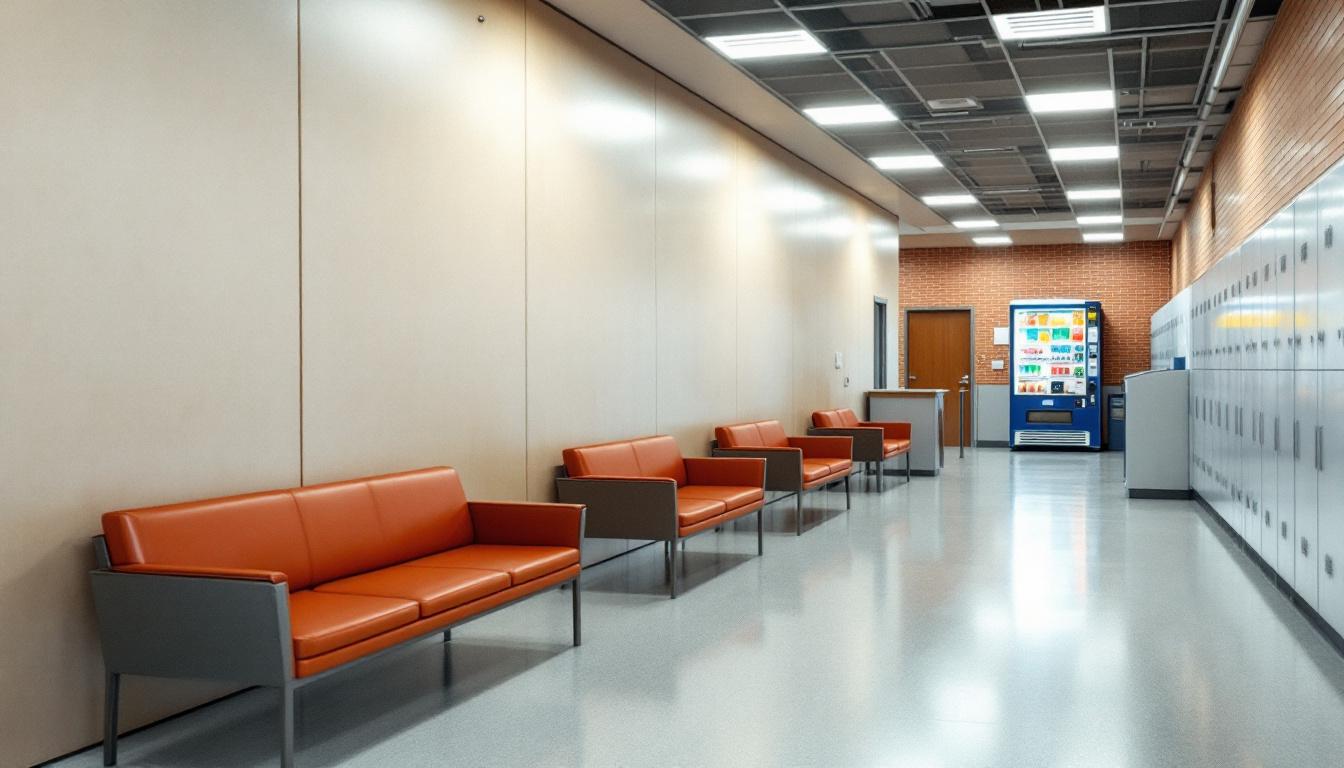
Organizational protocols at present actively shape every aspect of life within the facility, with structured schedules that typically begin before dawn and extend through evening hours. The population follows a regimented routine that generally includes scheduled meal times, work assignments, and programming activities designed to maintain order and provide purposeful engagement. Count procedures occur regularly throughout the day, ensuring accountability while allowing for supervised movement between housing areas and common spaces.
Housing units generally accommodate multiple individuals in shared cells or dormitory-style arrangements, with basic furnishings that typically include bunks, storage areas, and shared bathroom facilities. The population may access personal property within established guidelines, and commissary services usually operate on scheduled days to supply additional items. Living spaces are maintained through assigned cleaning duties that rotate among residents, creating a system where everyone contributes to the facility's upkeep.
In addition to this structured environment, recreational opportunities typically supply physical activity through scheduled gymnasium time and outdoor recreation when weather permits. Educational programming and work assignments often include kitchen duties, maintenance tasks, and facility operations that provide skill development while supporting daily operations. Despite this controlled setting, visitation policies generally allow for family contact through scheduled visits and phone calls, helping the population maintain connections with their support systems throughout their stay.
Ready to Connect?
Start communicating with your loved one today
Search for an Inmate

